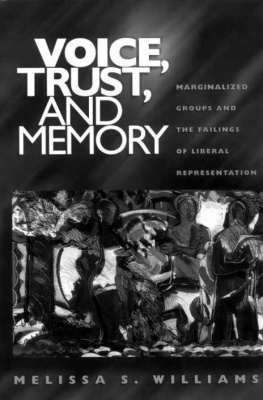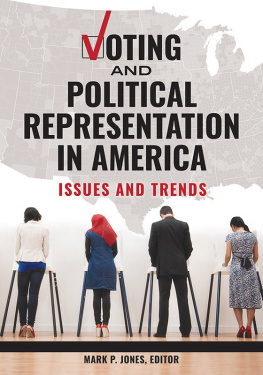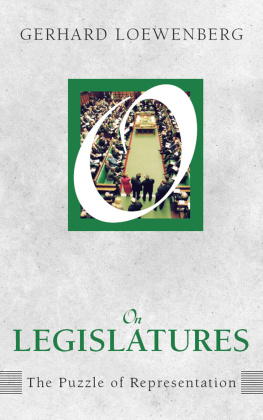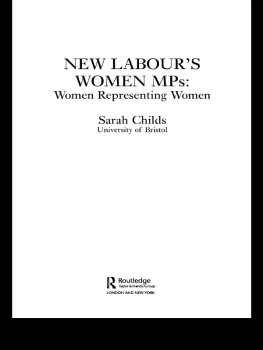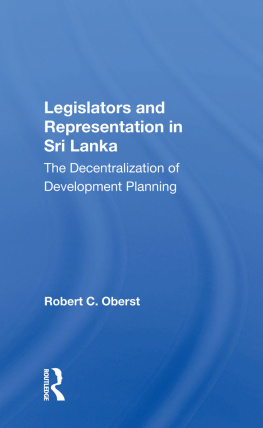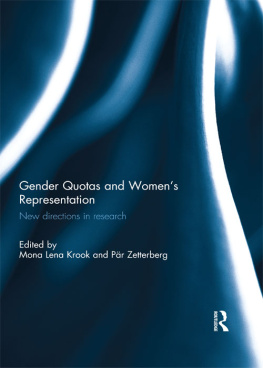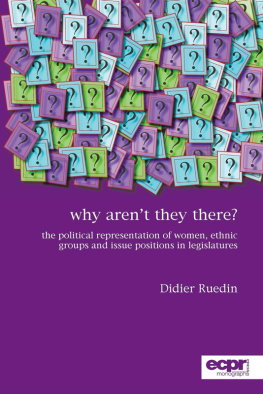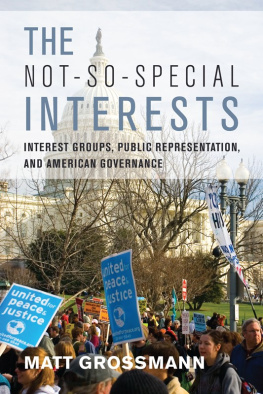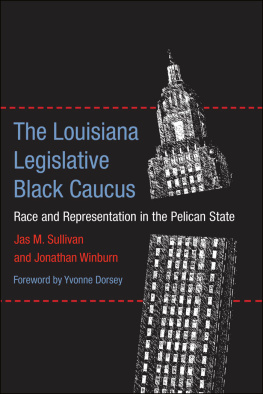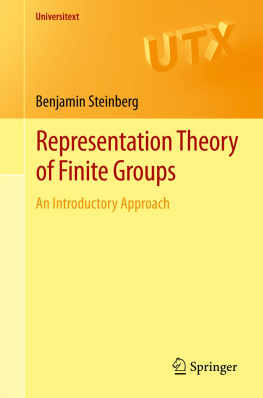VOICE, TRUST, AND MEMORY
VOICE, TRUST, AND MEMORY
MARGINALIZED GROUPS AND
THE FAILINGS OF
LIBERAL REPRESENTATION
Melissa S. Williams




To David
Contents
Xi
Introduction
One
Two
Three
Four
Five
Six
Seven
Conclusion
Acknowledgments
WRITING THIS BOOK has taken a long time, and in that time I have been the beneficiary of many generous people. I am humbled to reflect on the bountiful gifts of time, careful thought, and friendship I have received from these talented people, and on the inadequacy of my words to express my gratitude to them.
It is a particular sorrow that I am unable to thank Judith Shklar, who advised the doctoral dissertation out of which this book grew. Like so many others who learned from her, I miss the sparkle of her intellect and the integrity of her example. But her voice, always challenging, always calling on me to reach for a higher standard, is a still audible presence projecting over my shoulder, a sometimes irksome but always salutary companion.
Dennis Thompson also advised my dissertation and has continued to be an important source of insight and criticism for this and other work. One of his gifts to me was to perceive clearly what I was up to at a time when others did not. My own commitment to bridging the distance between the normative concerns of democratic theory and the structure of political institutions has received important sustenance from Dennis and his work.
The relationship between democratic theory and institutional design is mediated by myriad empirical questions. It was for this reason that I asked Sidney Verba, who so elegantly combines empirical inquiry with democratic theory, to serve as an additional adviser to my dissertation. It is a pleasure to thank him publicly for his many helpful comments on my work.
My good fortune in teachers has a history. I would especially like to thank Stephen Salkever, whose exemplary teaching first kindled my love for political theory, and who also took the time to read the entire manuscript and to offer instructive and insightful suggestions.
Two people deserve special thanks for their extraordinary friendship. Annabelle Lever has read this manuscript many times, and each time has given her distinctive and perceptive comments. Our conversations about matters both personal and political sustain me on many levels. Joseph Carens read various parts of the manuscript at various times, and again read the whole thing through at a critical juncture. His guidance on both substance and procedure has been golden, and his generosity as a friend and as a colleague is immeasurable.
I am especially grateful to Will Kymlicka and Iris Young for their thoughtful readings and constructive criticisms of the manuscript, from which it benefited considerably I would also like to thank Judith Baker, Rainer BaubOck, Keith Bybee, Joshua Cohen, Jenny Mansbridge, Steve Wasby, and three anonymous reviewers for reading the entire manuscript and offering helpful comments and challenges.
Many others have helped along the way with thought-provoking comments, suggestions, criticisms, and support, including Chloe Atkins, Sylvia Bashevkin, Nancy Burns, Betty Ann Donnelly, Marion Dove, Karen Feaver, Peter Feaver, David Fott, Jeanne Heifetz, Bonnie Honig, Veronica Jarek-Prinz, Evert Lindquist, Victoria Kamsler, Laurence McFalls, Daniel Markovitz, Tim Prinz, Arti Rai, Michael Sandel, Debora Spar, Allison Stanger, Shannon Stimson, Rob Vipond, Alec Walen, and Carolyn Warner. Many thanks also to Ann Wald at Princeton University Press for her patient and knowing performance of the role of editor.
I would also like to express my gratitude for the support I have received from all my family, especially to my parents for educating me. My siblings Diane Paul, Shelley Cummins, and Michael Williams have bolstered me throughout the process of writing this book. Thanks also to Katharin Welch for her considerable support.
Several people provided me with superb assistance in researching and preparing the manuscript. Sharon Krause did a tremendous job in editing the manuscript. Julie Bernier, Pak-cheong Choo, Troy Goodfellow, and Tom Jones acted as research assistants. Sandra Clancy, Catherine Frost, and Benjamin Moerman did painstaking work in finalizing the manuscript, and Rita Bernhard copyedited it with thoughtful care. I very much appreciate all their hard work. The reference staff at the Schlesinger Library, Radcliffe College, and at the Robarts Library of the University of Toronto provided essential research support for chapters 4 and 5, respectively.
I presented portions of the book or summaries of its argument in several academic forums and would like to thank the organizers of and participants in those forums for the opportunity to share my work and for their comments. They include the Department of Government of the University of Virginia, the Department of Political Science of St. Thomas University, the Department of Political Science at Rochester University, the Duke University Law School, the Law and Philosophy Reading Group at the University of Toronto, and the Canadian Centre for Philosophy and Public Policy.
I gratefully acknowledge permission to reprint material that has been published elsewhere. An earlier version of chapter 5 was published as "Memory, History, and Membership: The Moral Claims of Marginalized Groups in Political Representation," in Do We Need Minority Rights? Conceptual Issues, ed. Juha Raikka (The Hague: Martinus Nijhoff, 1996), pp. 85-119, Kluwer Law International. Brief sections of chapter l's discussion of Edmund Burke were originally published in my article, "Burkean `Descriptions' and Political Representation: A Reappraisal," Canadian Journal of Political Science 29 (1) (1996): 23-45.
I would also like to acknowledge with gratitude the financial and institutional support of the Social Sciences and Humanities Research Council of Canada, the Connaught Fund of the University of Toronto, the Department of Political Science at the University of Toronto, and the Program in Ethics and the Professions of Harvard University

